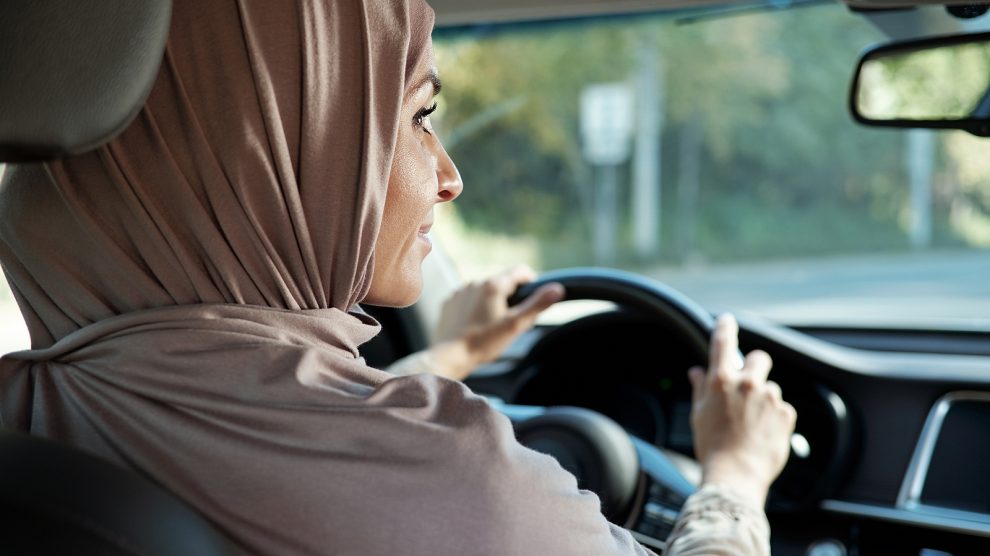As women’s rights suffer in Afghanistan, we should look to other countries in the region for inspiration.
From the Taliban reneging on a promise to provide education to girls, Iran being elected to a four-year term on the UN Commission on the Status of Women, and demonstrators on International Women’s Day in Turkey being met with tear gas, I’m tempted to despair about the prospects of women’s rights in the region.
- Tackling the under-representation of women in STEM in CEE and Central Asia
- How the private sector helps tackle gender inequality in Uzbekistan
- How empowering women could boost CEE economy by 146 billion euros
According to most global measures, the Middle East and North Africa still has some of the worst social, legal, and economic rankings for women. But amidst these retrograde steps, there are silver linings that give me hope, and the EU has a role to play in this.
It is not a surprise that the bravery of protesters in Afghanistan, Turkey, or Iran, demonstrating to achieve or retain basic rights, has fallen under the radar in an environment understandably focused on the war in Ukraine. But in the same way that Ukraine has become a symbol for the defence of universal democratic values, we should look to the activists and progress made in the Middle East as a symbol for hope on advancing the rights of women around the world.
Promising examples
Arguably the most promising example is the UAE, which now ranks 18th in the United Nations Development Programmes’s Gender Inequality Index. Half of its council members and around a third of the cabinet are women, while recent legislation means that women in the country have to be paid the same wage for the same work as men. The reforms in this country over the past ten years have been so extreme that it has moved from one of the lowest ranked countries globally in the WEF Global Gender Gap to now being above EU members such as Greece and Czechia, as well as South Korea and Japan, and not far off the UK.
Even Saudi Arabia, long known as one of the worst places to be a woman, now has quotas for representation in the legislative assembly, divorce rights, and a higher number of female than male graduates. Their reforms, which among other things enable Saudi women to live alone without the permission of a male guardian and drive a car by themselves, are making a tangible impact on the lives of many women. The sheer speed of this change, in a deeply conservative society, shows how vast sections of Saudi Arabia are rapidly changing.
Tunisia, already among the more progressive countries in the region, has joined the trend by making marital rape illegal in 2017, raising the age of consent to 16, and abolishing the rape-marriage law, which allowed rapists to avoid prosecution if they married their victim – laws that a number of countries, from Libya to Palestine, retain on their books. Tunisia now celebrates both International Women’s Day and its own National Women’s Day.
Mixed messages
The EU can play a role in advocating for greater gender equality as well. My former colleagues on the European Parliament’s women’s rights committee commissioned a report last year into the situation of women in the Gulf States. Among other things, the report highlighted how the starting point for the EU is a need to have established channels for dialogue and cooperation.
It is no secret that relations between the EU and MENA countries regarding women’s rights have been characterised by different cultural values and conceptions. But as the EU seeks a closer partnership with the Gulf with a strong emphasis on energy and security, it is important that women’s rights (and broader human rights) don’t take a back seat in that discussion.
Mixed messages remain in these countries, with traditional views prevailing on the right for women to work or travel alone. But while translating reforms into a change in social attitudes doesn’t always follow quickly, popular surveys in countries like Tunisia and the UAE do show that the tide is turning. When the Gulf Cooperation Council (GCC) met with the Taliban recently to discuss the humanitarian crisis in Afghanistan, they stated that respect for “basic freedoms and rights, including women’s right to work and education” was key to their position. This would have been inconceivable just a few years ago.
In the end, I am left with cause for both hope and concern. While the sheer rapidity of progress in some countries is astounding, there is no doubt that more work can be done, with the stalling or backsliding we have seen in some countries demonstrating just how fragile these advances can be. As a passionate advocate of gender equality, I can’t help but be deeply impressed by the courage of the women who face a fight for their rights, and the successes they have achieved along that path.
Unlike many news and information platforms, Emerging Europe is free to read, and always will be. There is no paywall here. We are independent, not affiliated with nor representing any political party or business organisation. We want the very best for emerging Europe, nothing more, nothing less. Your support will help us continue to spread the word about this amazing region.
You can contribute here. Thank you.



